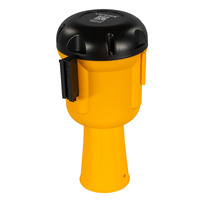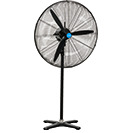What Are Heavy Duty Workbenches?
Date Posted:2 May 2025
Not all workbenches are built the same. Explore what makes a bench 'heavy duty' and why it matters.
What is a Heavy Duty Workbench?
A heavy duty workbench is a robust, high-capacity workstation designed to withstand the demands of industrial, commercial, and trade environments.
Unlike standard benches, these units are engineered for intense daily use, capable of supporting substantial weight, and enduring rigorous conditions.
If you're operating a manufacturing plant, running a busy mechanical workshop, or managing a trade site, a heavy duty workbench is an essential piece of equipment that enhances productivity, improves safety, and provides a durable, long-lasting workspace.
In this blog by Verdex, we explore what makes these benches so dependable, where they’re commonly used, and how to choose the right one for your needs.
What Makes a Workbench 'Heavy Duty'?
A workbench earns its "heavy duty" label through several defining features. Firstly, its load capacity is significantly higher than standard models, often supporting weights of 500 kilograms or more.
These benches are constructed with reinforced steel frames and thick, impact-resistant surfaces, such as hardwood, stainless steel, or laminate.
They’re designed to remain stable under pressure, even when accommodating heavy tools, machinery, or materials.
Additionally, they are often equipped with industrial-grade fittings and durable finishes that resist chemicals, oil, and wear over time. These features ensure consistent performance in tough environments.
If you're unsure which type of workbench suits your needs, check out our blog post on what workbenches are used for to explore common applications and find the right fit.
.jpg)
Where Are Heavy Duty Workbenches Commonly Used?
Heavy duty workbenches are found in a wide variety of demanding work environments across Australia.
Manufacturing Plants
In manufacturing plants, they’re essential for assembly lines, parts inspections, and equipment maintenance. Their ability to hold large tools and withstand constant vibration makes them invaluable on production floors.
Automotive Workshops
In automotive workshops, they support heavy mechanical components like engines and transmissions, offering a stable surface for repairs and diagnostics.
The same applies to metalworking and fabrication shops, where strength and stability are critical when cutting, grinding, or welding.
Warehouses and Distribution Centres
Warehouses and distribution centres also benefit from heavy duty benches for packing, sorting, and inventory management tasks.
The addition of drawers and storage options ensures tools and components are within easy reach, boosting workflow efficiency and reducing clutter. See our collection of packing benches.
Laboratories and Medical Facilities
Laboratories and electronics facilities often utilise heavy duty benches with antistatic features and power outlets for testing and assembly. Our stainless steel benches are suitable for these demanding workplaces where hygiene is important.
Commercial Garages
Even in commercial garages and high-end home workshops, tradespeople and hobbyists rely on these benches for their resilience and versatility.
Wherever durability, strength, and efficiency are essential, a heavy duty workbench proves to be an indispensable asset.
Choosing the Right Workbench for Your Needs
Selecting the right heavy duty workbench involves evaluating your specific workplace requirements.
-
Start by measuring your available workspace to ensure the bench will fit comfortably without disrupting workflow.
-
Consider the nature of your tasks. Do you need a surface for heavy tool use, electrical work, or material handling?
-
Check the weight capacity you require and match it with a bench rated to handle that load. If you move tools or workstations frequently, a mobile bench with lockable wheels may be ideal.
-
Lastly, think about integrated storage, such as drawers, shelves, or pegboards, to keep your workspace organised and efficient.
Don’t forget to consider the material of the bench surface. Metal for durability, wood for shock absorption, or stainless steel for hygiene and corrosion resistance.
See our other blogs for more information about the different types of workbenches used in industrial workplaces.

Extra Features to Look For
Modern heavy duty workbenches come with a range of accessories and features that enhance usability and efficiency. There are many key features to consider for a workbench in the workplace, with the below as a starting point.
Storage
One valuable addition is integrated storage, such as drawers, shelving units, or cabinets which help keep essential tools and materials within reach.
Pegboards and tool racks allow for vertical storage and easy access to hand tools. See our full range of shelving and storage equipment for more ideas.
Ergonomics
Height-adjustable benches are another key feature, offering ergonomic benefits by accommodating different users or task types.
These can be manual or powered, like our electric height-adjustable workbenches. They’re especially useful in shared workspaces where users have varying needs.
Flexibility
Modular components give you the flexibility to expand or reconfigure the bench to suit evolving workflows.
Some workbenches also offer built-in power access with outlets or USB ports, which are incredibly useful in electronics, assembly, or diagnostic environments. See our range of modular workbenches to visualise how this can suit your needs.
Safety
Other useful elements include non-slip surfaces, corrosion-resistant finishes, reinforced corners, and integrated lighting options for detailed tasks.
Depending on your industry, some models are also designed to comply with work health and safety standards, ensuring workplace safety.
These industrial workplace equipment can turn a basic bench into a multifunctional work centre that streamlines productivity.
Are Heavy Duty Workbenches Worth the Investment?
Absolutely. While the initial cost of a heavy duty workbench is higher than standard alternatives, the long-term benefits far outweigh the expense.
Their rugged construction means fewer replacements, less maintenance, and enhanced durability under constant use. This reliability leads to better productivity and reduced downtime in the workplace.
From an ergonomic and safety standpoint, heavy duty benches can reduce injury risk by offering stable, organised, and comfortable work areas.
When you factor in the potential for customisation and added features, the value becomes even more apparent.
For industrial and trade environments, they’re not just a purchase, they’re a smart investment.
If you are in the market for a workbench at home, we cover some of the key differences in our blog about industrial vs residential workbenches.
Invest in a Reliable Heavy Duty Workbench Today
Investing in the right heavy duty workbench can transform your workspace, whether you're running a commercial operation or refining your personal workshop.
These benches deliver the durability, load capacity, and features required for safe, efficient, and productive work. With so many configurations available, from fixed to mobile, with customisable options and integrated storage, there’s a solution to suit every trade and task.
Before making a decision, carefully assess your space, workload, and workflow to find a bench that meets your needs.
Explore our wide range of industrial workbenches or reach out to our team for personalised advice tailored to your specific application by either:
-
Filling out our contact form
-
Or emailing sales@verdex.com.au
FAQs
What’s the weight capacity of a typical heavy duty workbench?
Most heavy duty workbenches can support between 500 kg and 1,000 kg, though some models are rated even higher for industrial applications.
Can I use a heavy duty workbench at home?
Yes, many tradespeople and serious DIYers use heavy duty benches in their garages or home workshops for their strength and reliability.
Are heavy duty workbenches customisable?
Absolutely. Many models offer modular components, storage options, adjustable heights, lighting, and tool attachments to suit specific workflows. Try our workbench configurator to build your own custom solution.
Do I need a mobile or fixed workbench for my workshop?
It depends on your setup. Mobile workbenches offer flexibility and easy relocation, while fixed benches provide maximum stability for heavy-duty tasks.


































































































































 Trolleys & Hand Trucks
Trolleys & Hand Trucks Cage Trolleys
Cage Trolleys Cleaning Carts & Trolleys
Cleaning Carts & Trolleys Construction Trolleys
Construction Trolleys Custom Trolleys
Custom Trolleys Hand Trucks & Dollies
Hand Trucks & Dollies Laundry/Linen Trolleys
Laundry/Linen Trolleys Lifting Trolleys
Lifting Trolleys Order Picking Trolleys
Order Picking Trolleys Panel Cart Trolleys
Panel Cart Trolleys Platform Trolleys
Platform Trolleys Powered Trolleys
Powered Trolleys Shelf & Tiered Trolleys
Shelf & Tiered Trolleys Shopping Trolleys
Shopping Trolleys Stainless Steel Trolleys
Stainless Steel Trolleys Tool Trolleys
Tool Trolleys Utility & Service Carts
Utility & Service Carts Lifting & Handling Equipment
Lifting & Handling Equipment Forklift Attachments
Forklift Attachments Jib Attachments
Jib Attachments Lifting Hoists & Pallet Hooks
Lifting Hoists & Pallet Hooks Load Skates & Tow Tugs
Load Skates & Tow Tugs Manual Stackers & Lifters
Manual Stackers & Lifters Pallet Jacks
Pallet Jacks Pallet Lifters
Pallet Lifters Pallet Rotators & Dispenser
Pallet Rotators & Dispenser Powered Pallet Trucks & Electric Lifters
Powered Pallet Trucks & Electric Lifters Scissor Lift Trolleys and Tables
Scissor Lift Trolleys and Tables Conveyor Equipment
Conveyor Equipment Conveyor Frames & Stands
Conveyor Frames & Stands Roller & Skate Conveyors
Roller & Skate Conveyors Ladders & Access Equipment
Ladders & Access Equipment Container & Yard Ramps
Container & Yard Ramps Ladders & Step Stools
Ladders & Step Stools Work Platforms & Crane Cages
Work Platforms & Crane Cages Drum Handling Equipment
Drum Handling Equipment Drum Storage & Bunding
Drum Storage & Bunding Drum Trolleys & Lifters
Drum Trolleys & Lifters Forklift Drum Handling
Forklift Drum Handling Waste Handling & Bins
Waste Handling & Bins Bin Lifters & Tippers
Bin Lifters & Tippers Plastic Waste & Wheelie Bins
Plastic Waste & Wheelie Bins Steel Waste & Tipping Bins
Steel Waste & Tipping Bins Waste Carts
Waste Carts Dangerous Goods Storage & Spillage
Dangerous Goods Storage & Spillage Aerosol Cans Storage Cages
Aerosol Cans Storage Cages Bunded Pallets & Storage
Bunded Pallets & Storage Corrosive Goods Storage Cabinets
Corrosive Goods Storage Cabinets DG Storage & Trolleys
DG Storage & Trolleys Flammable Liquid Cabinets
Flammable Liquid Cabinets Forklift Gas Storage Cages
Forklift Gas Storage Cages Gas Cylinder Storage Bays
Gas Cylinder Storage Bays Site Storage
Site Storage Spill Kits
Spill Kits Shelving & Storage Equipment
Shelving & Storage Equipment Stillage & Transport Cages
Stillage & Transport Cages 750 Series Cage Configurations
750 Series Cage Configurations Heavy Duty Cabinets
Heavy Duty Cabinets Heavy Duty Shelving
Heavy Duty Shelving Mega Bins & Pallets
Mega Bins & Pallets Packing & Workbenches
Packing & Workbenches Parts Trays & Stor-Pak Bins
Parts Trays & Stor-Pak Bins Pegboard & Louvre Panels
Pegboard & Louvre Panels Plastic Bins & Crates
Plastic Bins & Crates Plastic Handling Solutions Bins
Plastic Handling Solutions Bins Plastic Pallets
Plastic Pallets Stack & Nest Bins
Stack & Nest Bins Pallet Racking Accessories
Pallet Racking Accessories Workplace Equipment
Workplace Equipment Modular Workbenches
Modular Workbenches Electric Height-Adjustable Workbenches
Electric Height-Adjustable Workbenches Floor Matting
Floor Matting General Workplace Equipment
General Workplace Equipment Industrial Weighing Scales
Industrial Weighing Scales Packaging Machinery
Packaging Machinery Stationery Cupboards
Stationery Cupboards Storage and Stillage Cages
Storage and Stillage Cages Tool Trolleys
Tool Trolleys Tooling Cabinets
Tooling Cabinets Workshop Fans and Coolers
Workshop Fans and Coolers Safety Barriers, PPE & Signage
Safety Barriers, PPE & Signage Modular Safety Fence System
Modular Safety Fence System Barriers & Bollards
Barriers & Bollards First Aid Equipment
First Aid Equipment Gloves, Knives and PPE
Gloves, Knives and PPE Signage
Signage Cleaning & Site Supplies
Cleaning & Site Supplies Cleaning Equipment
Cleaning Equipment Cleaning Trolleys
Cleaning Trolleys Rubbish Bins
Rubbish Bins Signs & Traffic Supplies
Signs & Traffic Supplies Construction Equipment
Construction Equipment Construction Trolleys
Construction Trolleys Waste Handling
Waste Handling General Site Equipment
General Site Equipment Concrete Equipment
Concrete Equipment Site Storage
Site Storage Lifting Equipment
Lifting Equipment Verdex Specials
Verdex Specials









